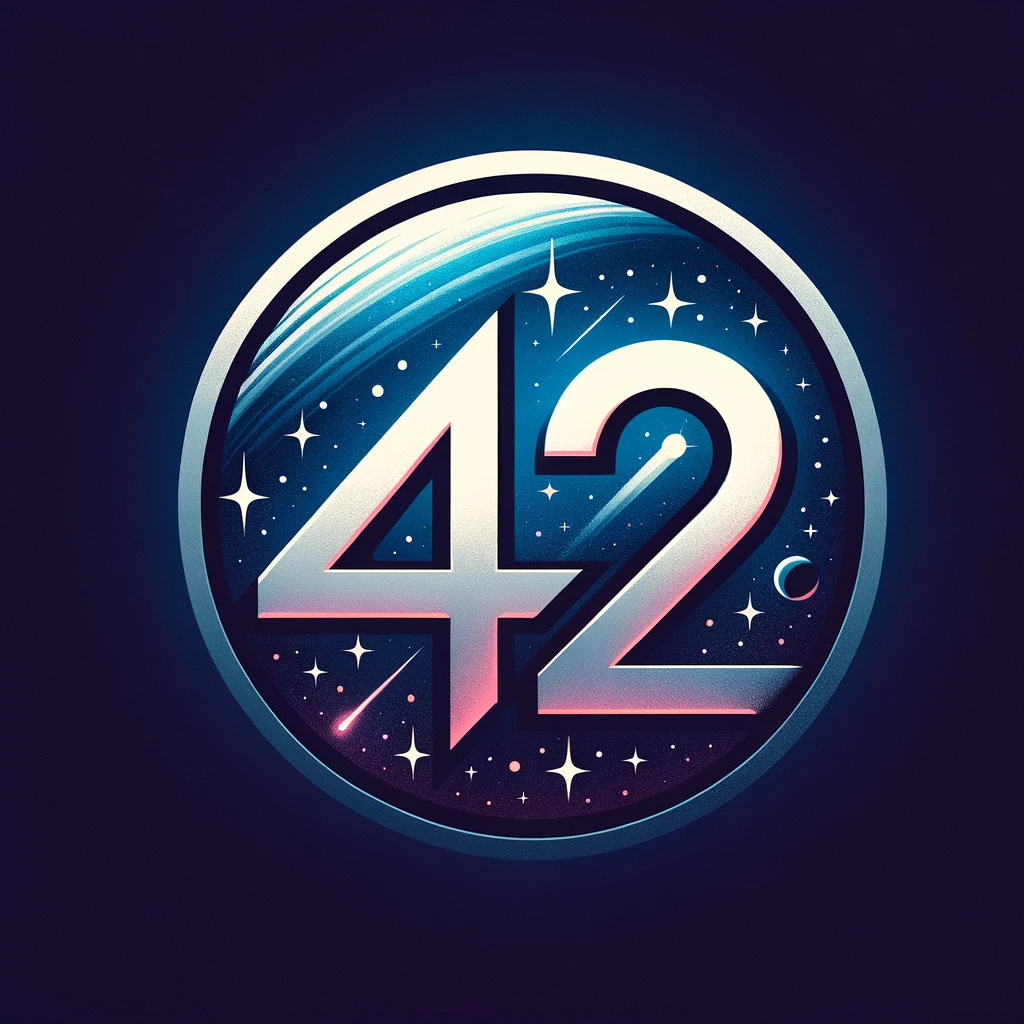“I don’t know.”
The trick is not to follow that with “therefore…”
Something’s gotta be, may as well be this
On a more serious note, I have absolutely no basis for this whatsoever but I think it’s likely there’s an antimatter universe somewhere, and that that and our universe spontaneously came into existence from nothing. 0 = -1 + 1. I mean, it’s almost certainly nonsensical to the people who study this stuff but it’s a fun idea
I don’t know enough either, but a fun thought experiment is maybe we’re the anituniverse? There’s a lot more mass in the universe, than there should be, and we don’t know what it is. It’s just “dark matter” and “dark energy”.
Edit: please correct me if I’m wrong, I’ve only read pop science stuff like Hawkins books
There is a theorie where we could live inside a blackhole, maybe it’s the creation of it that we call the bigbang and it somehow explain why the universe is in expansion.
If nothing existed, it would not be possible to raise a question of this - or any other - type.
So that is that determined.
Whether anything beyond my instantaneous perception of thought relating to this question exists is another matter. I can’t prove it. I wouldn’t really say that I do ‘explain’ it either. I merely have an experience of it.
Everything existing in the universe is the fruit of chance and necessity.
I don’t.
I don’t care if it’s actually real because it feels real enough.
This exactly. Any greater insight or “enlightenment” doesn’t change anything and has no tangible benefits. Frankly attempting to find it would drive most anyone mad, so I don’t bother.
My man over here living their best life inside the matrix
Or Azathoth’s dream.
If it didn’t then we wouldn’t be here to ask why.
It’s likely nothing caused the universe to exist, since there’s no reason to think causality even exists outside the universe.
Where (or when) there is no causality, everything (every universe) can appear out of nothing.
Maybe we are both saying the same thing here with different phrasing ?
Selection bias.
If it didn’t exist, you wouldn’t be asking.
Indeed
There are probably countless universes, most of which are empty.
Only on the ones with the correct physics is life able to evolve.
And only on those this question can be asked.
It’s a long lasting, constantly evolving, multi-versal fluke.
We can’t see, experience, or detect most of the universe — read: existence — let alone measure it. That pretty much means, to me anyway, we can’t explain it.
Explaining existence, then, is limited to explaining my own perception of existence. To be brief: The things that exist got here the same way we did and use the same materials and rules. Conscious beings stay in the universe by maintaining consciousness; for us, that generally means being alive, awake, and alert — in that order. Upon death, consciousness ends, or departs, or continues (no one knows) and our corporeal form goes back to existing as atoms in other states within the environment. Present existence, then, pregnant by the ghosts of all existences that has gone before and is carrying to term all existences that will exist after. It’s an endless, cyclical flow of atoms, energies, and absences. A crossroads of Space and Time culminating in experiential states and chains of causality. Billions of years in a blink.
Other conscious beings may operate or perceive differently. We can’t individuall confirm or know. That’s another of those rules.
That said, we only get to ride this existence thing for a short time. Build up your XP and use your one and only life doing good. Not necessarily well, but good.
Imagine standing outside of Time and Space and making a divine survey of the grand tapestry of the possible. It would look like math painted onto bubbles that glow from within, I think. That’s what Existence may be.
I’m in the “we’re living in a simulation” camp. I just think it’s mostly unattended. Every once in a while the being running the simulation comes back and pokes at the console or upgrades their computer and we have some innovation. The invention of fire, agriculture, the Renaissance, space race, etc.
It explains why we keep thinking we find the building blocks of the universe, then discover something smaller (gpu upgrade). Or why there’s a universal constant speed (cpu clock).
I just hope the Bering doesn’t get bored and end the program for the last time like I eventually did to my sim city.
I couldn’t possibly. This shit don’t make no sense.
The totality of manifestation, and everything therein, is consciousness itself, the Unicity. All there is is consciousness, not aware of Itself in it’s noumenal subjectivity, but perceived by Itself as phenomenal manifestation in It’s objective expression. … such understanding must comport the realization that there is no individual entity as such. What we think we are is merely an appearance, an insubstantial shadow, whereas what we really and truly are, is consciousness itself, the formless Brahman.
- Ramesh Balsekar
I shrug and go play a videogame. There’s nothing I can do about it no matter the answer.
There was nothing. And immediately as consequence the negation of nothing, a thing, emerged. Nothing and a thing cannot occupy the same locus. Thus a place apart came into being. The first thing fell apart. Thus two nothings were. But this couldn’t be so two things emerged. And so it went until there was a universe with increasing entropy and chaos for all.
The best I can ever do is learn more about the universe we live in. I don’t think we may ever have concrete answers for any of those questions. We may not even be asking the right questions to begin with. Science youtube channels scratch that inch for me though. PBS Space Time, Astrum, SEA and Arvin Ash’s channel are some of my favorites. Content a bit more in depth than the most basic but presented in a way a smooth brain like myself can mentally digest.












